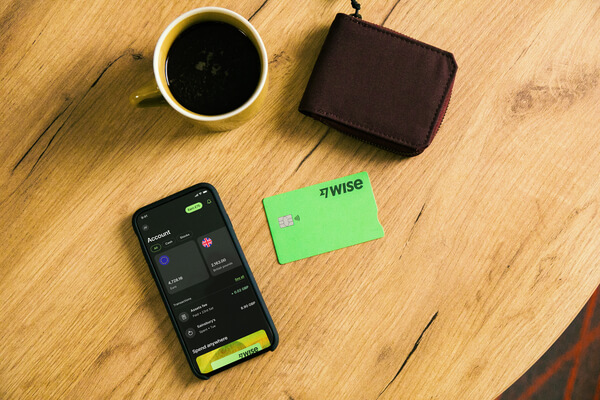Australian bank account for non-residents. What to know.
Planning to move to Australia? Known as the land of sea and sun, Australia offers many great opportunities to new arrivals, although there are of course some...

If you’re looking to experience Berlin’s thriving startup scene; or to take your financial career to the next level in Frankfurt - Europe’s very own Main-hattan - at some point you’re going to need a German bank account.
Germany has a very strong and well organised banking sector, so opening a bank account should be a quick process; provided you have the correct documentation. Here’s what you need to know.
While some banks will need you to make an appointment and visit a branch in order to open a bank account, as a general rule you can make your application online.
That said, it’s probably better to make your application in a branch. Many banks’ websites (including those of major banks) are entirely in German, so making an online application will be a challenge if you don’t understand the language.
In any case, you’ll need to be physically present in Germany in order to apply for your account. This is because you can only obtain some of the required documents (and complete the account opening procedure) once you’re in the country.

In order to open a bank account in Germany, you’ll need the following documents:
Some banks may also ask for a document to prove your income, such as payslips or a salary statement from your employer. It’s best to check with your bank beforehand whether they’ll require these and any additional documents.
If you plan on residing in Germany permanently, you need to register your address with the local authority, called Bürgeramt. The process is called Meldebescheinigung, and you’ll need to do it every time you change your address.
In order to complete the process, you’ll need to fill out a form (you can print this off your local Bürgeramt’s website), and then go to the Bürgeramt office with the form and your passport or identity card. dw
This document is your official proof of address, so you’ll need to register before you can open your bank account. You’ll also need it for other things, including getting a job and registering for the national health insurance program.
As in most other countries around the world, German banks are required by law to verify your identity.
This isn’t a problem when you open your account in branch, because a bank official will see your passport or national identity card and confirm your identity in person. However, if you decide to open your account online, you’ll need to verify your identity some other way.
In Germany, PostIdent is the most common way to verify your identity.
You’ll need to download an identity verification sheet from your bank’s website and present it at your local post office together with your passport or national identity card. You’ll then be given another document to sign, which is sent to your bank. Your bank will usually pay the fee for this procedure.
Alternatively, you can get your identity verified by a lawyer or notary. Again, you’ll need to download the identity verification sheet and take this to your lawyer together with your passport or national identity card. Many banks will reimburse this fee, too.
Finally, depending on your nationality, a German bank might also accept verification carried out by your home bank. You can get in touch with a customer representative beforehand and they’ll guide you on how to go about this.

Old-world bank accounts only work properly in one country. They hold money only in one currency. And it gets expensive when you try to use them across borders. Wise's new Borderless accounts solve all of this.
Now you can send, receive and organise your money internationally, without crazy fees or even-crazier exchange rates – just a small, fair charge when your money moves between currencies.
Banking has a long history in Germany. There are thousands of banks, sorted into three categories: private banks, cooperative banks and public access banks. Despite these differences, most banks offer very similar products, including basic bank accounts, student accounts and business banking facilities.
The four largest banks in Germany are Deutsche Bank, Commerzbank, Postbank and Hypovereinsbank. Together, they cooperate as the Cash Group (more on this later).
Here’s what they each have to offer.
Deutsche Bank is one of the largest international banks in the world, and probably the most well known German bank.
Its two main bank accounts BestKonto and AktivKonto, both come with a MasterCard credit card as standard and can be opened online. A word of warning though: the website is entirely in German.
The main difference between the two accounts is that BestKonto has a more expensive monthly fee (it costs €9.99 a month, while AktivKonto costs €4.99 a month) and comes with more perks, including travel insurance and security and emergency services.
The student account, called Das Junge Konto is free and offers 0.1% in-credit interest a year.
There’s also a range of services for businesses and freelance professionals. These include a bank account, called KanzleiKonto, made specifically for accountants, lawyers and other professionals that hold client money.
Commerzbank’s range of bank accounts includes a free, basic bank account and a premium account, called PremiumKonto, that offers two debit cards and travel insurance.
The student account, called StartKonto, is available to students aged 18 to 30. It’s free and includes a young visa credit card and five free downloads from Universal Music.
If you’re a business owner, Commerzbank also offers a range of business services, including tailored bank accounts and point of sale systems. You’ll also benefit from advice on managing your finances.
Commerzbank’s website has an excellent English translation. However, you cannot apply for a bank account online.
Postbank’s basic bank account, GiroBasis, has a free visa debit card as standard and supports online payments via Paydirekt.
The student account, Giro start direkt, is free if you’re under 22. You can also get up to €250 in Amazon vouchers as bonuses when you recommend a friend, as a loyalty bonus, and even for graduating and earning your first salary.
Postbank’s business account, Business Giro, also comes with a number of benefits, including up to four €50 vouchers from Amazon. You’ll also get a business visa credit card with 40 day payment terms and interest-free credit.
HypoVereinsbank is part of the international Italian banking group Unicredit, one of the leading banking groups in Europe. It has a range of bank accounts you can apply for online. However, the website is in German, so it may be a challenge if you don’t understand the language.
As the name suggests, the HVB Konto Online is a basic, online only account. It has no monthly fees and comes with a free debit card.
The HVB Konto Start is available to students up to 25 years old. It’s free and includes a free MasterCard as standard.
The bank also offers special business accounts for professionals. These include accounts made specifically for doctors and chemists as well as products for entrepreneurs.

Most banks in Germany offer free bank accounts which include a free debit card and free online banking as standard.
A basic account should be more than enough for most of your everyday banking needs. However, it won’t have much in the way of perks. If you’re looking for additional benefits, such as free travel insurance, you’ll need to choose a premium account and pay a monthly fee.
Germany’s four major banks and their subsidiaries cooperate as the Cash Group. What this means for you is that ATM withdrawals are free if you bank with one of Germany’s four major banks and use any of their ATMs. Use another ATM, however, and you risk paying very high fees (up to €5 per withdrawal).
Some banks offer free withdrawals in some foreign ATMs if you have a premium bank account. However, while you won’t be charged a fee for making the withdrawal, you may be faced with an unfavourable exchange rate.
As a general rule, you should avoid withdrawing foreign money from an ATM. If this isn’t possible, you should at least make the withdrawal in your local currency so as to minimize costs.
German banks often charge fees for international money transfers outside of the eurozone. However, you should also beware when a bank says international transfers are commission-free, as it will often make up for this by giving you a unfavourable exchange rate instead.
You’ll also need to consider whether the foreign bank will charge a fee for the incoming transfer, as this will further increase the cost.
*Please see terms of use and product availability for your region or visit Wise fees and pricing for the most up to date pricing and fee information.
This publication is provided for general information purposes and does not constitute legal, tax or other professional advice from Wise Payments Limited or its subsidiaries and its affiliates, and it is not intended as a substitute for obtaining advice from a financial advisor or any other professional.
We make no representations, warranties or guarantees, whether expressed or implied, that the content in the publication is accurate, complete or up to date.

Planning to move to Australia? Known as the land of sea and sun, Australia offers many great opportunities to new arrivals, although there are of course some...

Looking for how to open a bank account with Suncorp? We’ve got you covered. Here’s the process, fees and what you need to know.

Looking for how to open a bank account with BankSA? We’ve got you covered. Here’s the process, fees and what you need to know.

When looking for the perfect bank account for your money, it’s important to evaluate the options before settling on one. Banks and their bank account...

Here’s how to close your Bank of Queensland account and options to move your money out correctly

Looking for how to open a bank account with BOQ? We’ve got you covered. Here’s the process, fees and what you need to know.